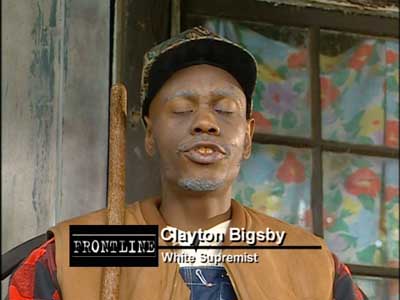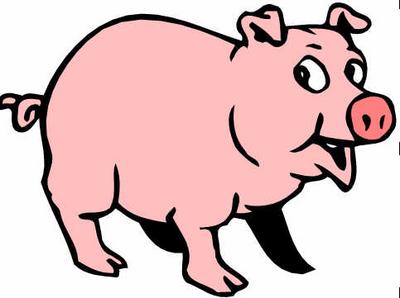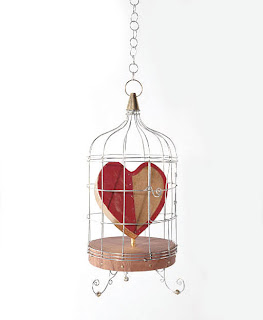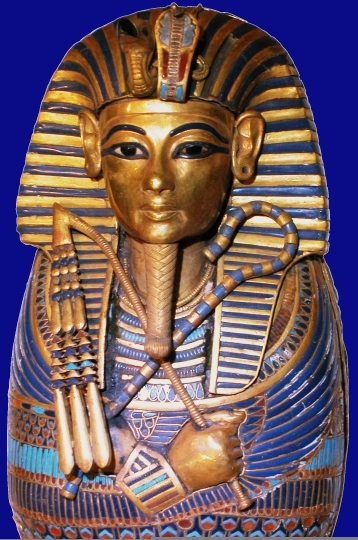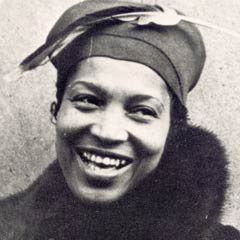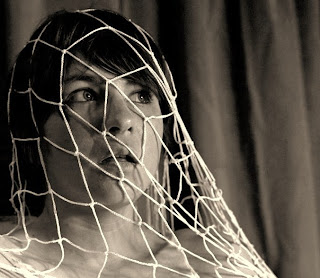
While reading this novel I have noticed a cycle in Janie's choice in men. Throughout the novel Janie has appeared to choose men who seem at first to be meritorious in their treatment towards Janie, but over time have quickly turned into a more dominant figure. This is ironic because througout the novel so far, Janie's primary search has been that of freedom and identity, yet she continues to choose men who take both of those things away.
First there was Logan Killicks, a hardworking man chosen by her grandmother, who had lotss of lands and honerable prospects. Although Janie did not exactly choose Logan, she allowed Nanny to marry her off when she could have refused. Logan was a perfect husband at first adored her; chopping wood for her, stroking her hair, and speaking to her in rhymes. Later though, when Janie refused to comply to his wishes and be hardworking like himself, Logan became dominant over Janie. He stopped toting wood for her and tried to buy her a mule so she could work on the farm as well, but Janie refused to do such things and became angry with Logan. In turn he tried to belittle and shame her into complience saying," Ah'm too honest and hardworkin' for anyone in yo' family" (p. 32), and when she brings up talking about things for the first time his response is,"It's about time. Youse powerful independent around here all things considerin'." (p. 30) This directly shows his desire for dominence over her because he is averse to her independence and personal freedom and feels it is his need to control her.
After leaving Logan, Janie moves on to an even more dominant figure; Joe Starks. Joe also doesn't appear dominant at first glance. He tells Janie of his aspirations of a new town, and Janie finally feels love for the first time. He also strokes her beautiful hair and likes her to let it down around him. As time moves on, his adoration turns to excessive control. He makes her work in the store and cover her hair, her main source of empowerment. Joe is also a huge womanizer and believes women's place is behind their men, and forces Janie to live this out. She is not allowed to participate in conversations around the store or play chess with the men. Joe also has an obsession with being better than everyone, which he shows by his spit bowl, his giant stark white house, and his position as mayor. The brunt of this is cast upon Janie, and all of the things she does better than him make him more and more controlling and belittling to her. Eventually Joe dies and Janie is finally free for the first time in her life.
Janie experiences a short bit of freedom, in which even her store assistand Hezekiah is slightly dominant, acting more and more like Joe each day which Janie notices but laughs off. After only a short amount of time, Janie meets Tea Cake, and although her conscience tells her not to, she allows him to come into her life and begin to dominate him. Tea Cake seems like a perfectly harmless character, but he does show some signs of slight dominence. Janie is deeply in love with Tea Cake, and therefore easily complies to his wishes, but if she did not it seems as though he would turn into another Joe or Logan. First, Tea Cake tells her to wear blue and come off to marry her. Janie is happy to do this for Tea Cake because she loves him, but even so it would not be a choice, it is his command. Later, Tea Cake takes her money and leaves for a couple days partying and having a good time. This leaves Janie alone worrying herself sick, and he did not even consider to tell her. This shows a complete disregard for her feelings, even though he is apologetic afterwards. Because he doesn't care about her wishes one can infer that he only cares about his own, and wants her to live around them and do what he wants her too. Another act of his carelessness and selfishness his his flirting with Nunkie while they are living in the Evergaldes. If he considered Janie at all, he would have definitely figured that this would upset her. Instead he flirts and leads Nunkie on until Janie is so upset she speaks up. At this, Tea Cake acts as if it is obvious he wouldn't take Nunkie over Janie so she shouldn't be worried, and uses his smooth words to get her over it. He also uproots and moves them to the Everglades from Jackson. He has been moving Janie all around and she is expected to follow him. In regard to Janie's money, Tea Cake says, "From now on, you gointuh eat whutever mah money can buy yuh and wear de same. When I ain't got nothin' you don't git nothin'." (p.128) This shows that Tea Cake has a lot of pride and does not want to take money from Janie, or allow Janie to have her own money. To take money from Janie would make him better than her and for Janie to have her own money would make her more free and independent. Not allowing both of these things to happen shows Tea Cake as a dominant individual.
The similarity of Tea Cake, Logan, and Joe shows that Janie is attracted to dominence, and perhaps afraid or not ready for freedom. It also foreshadows a possible outcome of Janie and Tea Cakes marraige.





